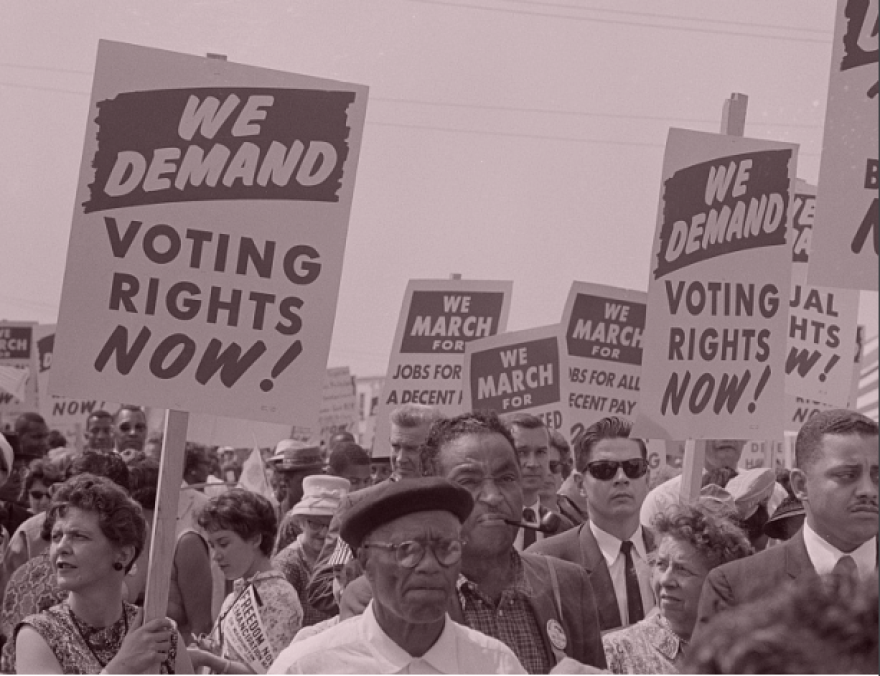Tuesday was the last day to register to vote in the upcoming election, but a new report from a voting rights advocacy group shows that 1 in 4 black Kentuckians will not be able to participate because of a felony conviction.
The Sentencing Project, a grant-funded reform advocacy group, uses data from the Bureau of Justice Statistics and says 6.4 million Americans have had their voting rights stripped due to a prior conviction, even though approximately 77% of that number currently live outside of prison.
Disenfranchisement laws vary from state to state. On the most lenient end, Maine and Vermont allow felons to vote even from prison. On the other extreme, 12 states, including Kentucky, forbid voting for felons in prison, on parole or probation and post-sentence for several years or for life.
Read the report 'Six Million Lost Voters' from the Sentencing Project in full here

In some states (Flordia, Mississippi, Kentucky), disenfranchisement rates exceed 9 percent of the total state population.
But the study finds rates are much more drastic among minority groups. Kentucky has the highest percentage of African Americans disenfranchised at 26%, followed by Florida, Tennessee and Virginia at 21 percent.

Tawyna Fogel, a voting rights advocate with Kentuckians for the Commonwealth and a former felon who fought to have her rights restored, says disenfranchisement creates a systematic cycle as it disproportionately affects black people’s ability to vote for political change in their community.
“If I was sentenced to ten years and I did the ten years and was able to get out, why should I take another lifelong sentence or however long the establishment wants me to stay in bondage and not use my right to vote?" said Fogel. "It sounds like double jeopardy to me.”
According to the report, 50 percent of the disenfranchised in twelves states are people who have completed their sentence.

In the commonwealth, felons can apply to have their rights restored by the governor once their records have been expunged. But Fogel says expungement laws, like the one signed by Gov. Bevin earlier this year, only apply to certain ‘white crimes’ and not substance-related felonies that affect most African-Americans in the prison system.
“The catch-22 is they’re only given certain charges for expungement," said Fogel. "If your charge doesn’t fit under this category that these people came up with then you’re still lost. And that’s the majority of African-Americans.”
The study’s author says factors for the disparity stem from changes in voting rights policy, higher incarceration rates and overall population growth.





